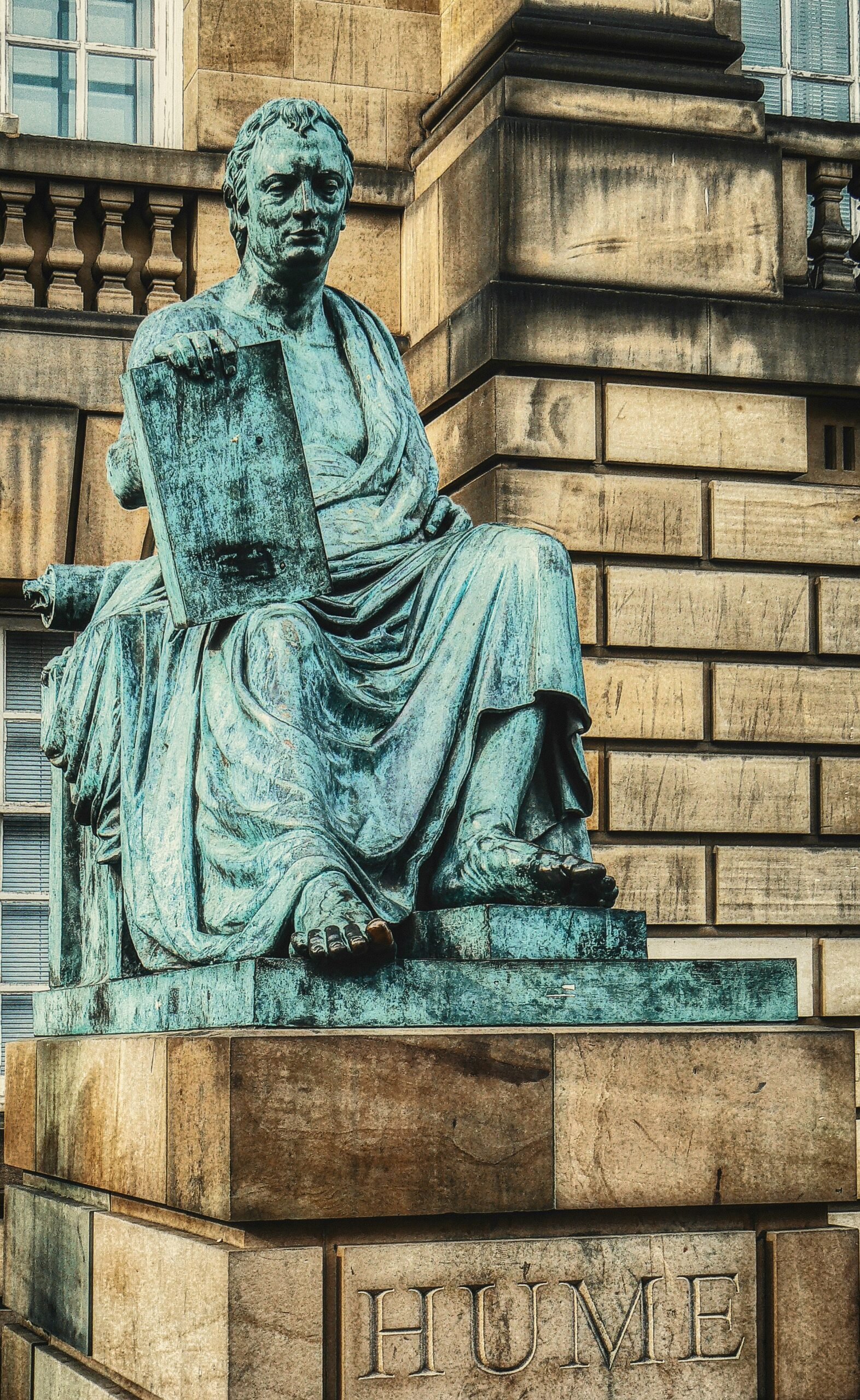Existence Preceding Essence: A Paradigm Shift in Philosophy
Jean-Paul Sartre’s exploration of the relationship between existence and essence in his book “Being and Nothingness” has had a profound impact on the field of philosophy. His revolutionary idea that existence precedes essence challenges traditional philosophical notions and opens up new avenues of thought.
Traditionally, philosophers have argued that essence precedes existence. This means that an entity’s essence, or its fundamental nature and characteristics, is predetermined and exists before the entity itself comes into being. However, Sartre flips this idea on its head by asserting that existence comes first, and it is through our existence that we create our essence.
According to Sartre, human beings are unique in that they have consciousness and free will. Unlike inanimate objects or animals, humans have the ability to reflect upon their existence and make choices that shape their essence. Sartre argues that we are not born with a predetermined essence or purpose; instead, we are born into the world as blank slates, and it is up to us to define ourselves through our actions and choices.
This concept of existence preceding essence has far-reaching implications for various aspects of human life. It challenges the idea of a fixed human nature and suggests that individuals have the freedom to create their own identities and determine their own values. This existentialist perspective emphasizes the importance of personal responsibility and the need for individuals to take ownership of their lives.
Moreover, Sartre’s idea of existence preceding essence has implications for moral and ethical considerations. If there is no predetermined essence or moral code, then individuals are responsible for creating their own ethical frameworks. This places a significant burden on individuals to make moral choices and live in accordance with their own self-defined values.
Sartre’s philosophy also has implications for our understanding of authenticity and inauthenticity. In a world where existence precedes essence, individuals are faced with the challenge of living authentically. Living authentically means being true to oneself and making choices that align with one’s own values and beliefs. On the other hand, inauthenticity arises when individuals conform to societal expectations or adopt values that are not true to their own nature.
In conclusion, Sartre’s concept of existence preceding essence has revolutionized the field of philosophy. By challenging traditional notions and emphasizing the importance of individual freedom and responsibility, Sartre opens up new avenues of thought and forces us to question our assumptions about human nature and the meaning of life. This existentialist perspective invites us to reflect on our own existence, make choices that align with our values, and live authentically in a world where existence comes before essence.
This concept of existence preceding essence is central to Sartre’s philosophy and has profound implications for how we understand ourselves and our place in the world. It challenges the notion that there is some inherent meaning or purpose to our existence that we must uncover or fulfill. Instead, Sartre argues that we are constantly in the process of becoming, continually shaping and defining ourselves through our actions and choices.
For Sartre, this freedom to create our own essence is both liberating and daunting. On one hand, it means that we are not limited by any predetermined characteristics or societal expectations. We have the power to break free from the constraints of tradition, social norms, and even our own past actions. This freedom allows us to constantly reinvent ourselves, to explore new possibilities, and to challenge the status quo.
However, this freedom also comes with a great deal of responsibility. Sartre argues that we cannot escape the burden of choice. Every decision we make, no matter how seemingly insignificant, carries weight and has consequences. This can be overwhelming, as it means that we are solely responsible for the direction of our lives. We cannot blame our circumstances or external factors for our choices; we must take ownership of them.
Moreover, Sartre believes that this freedom is not only an individual responsibility but also a collective one. He argues that our choices not only shape our own existence but also impact the world around us. Our actions have the power to shape society, to challenge oppressive systems, and to create a more just and equitable world. This understanding of the interconnectedness of individual freedom and collective responsibility is a crucial aspect of Sartre’s philosophy.
In conclusion, Sartre’s concept of existence preceding essence challenges traditional notions of human nature and offers a radical perspective on individual freedom and responsibility. It emphasizes the power of choice and action in shaping our own lives and the world we live in. By rejecting the idea of a predetermined essence, Sartre invites us to embrace the uncertainty and possibility that come with our freedom while reminding us of the weight of our choices and the collective responsibility we have to create a better future.
This rejection of essentialism is a fundamental aspect of Sartre’s existential philosophy. He argues that if humans were to have a fixed essence or nature, it would imply that they are predetermined and have no control over their own lives. This notion goes against the core principles of existentialism, which emphasize individual freedom and responsibility.
In Sartre’s view, humans are not defined by any predetermined essence but rather by their existence. This means that individuals are not bound by any fixed set of characteristics or qualities but rather have the ability to shape their own identity through their choices and actions. This concept of existence preceding essence is liberating, as it allows individuals to break free from societal expectations and norms and instead embrace their own unique path.
However, this freedom also comes with a great deal of anxiety and responsibility. Without the comfort of a predetermined essence, individuals are faced with the daunting task of creating their own meaning and purpose in life. This can be overwhelming, as it requires individuals to confront the uncertainty and ambiguity of existence. Sartre refers to this as “existential angst,” the anxiety that arises from the realization that one’s existence is not predetermined and that they must take responsibility for their own choices.
In order to navigate this existential angst, Sartre argues that individuals must embrace their freedom and make authentic choices that align with their own values and beliefs. This requires deep self-reflection and an understanding of one’s own desires and aspirations. By embracing this freedom and taking responsibility for their own existence, individuals can find a sense of fulfillment and create their own meaning in life.
Overall, Sartre’s rejection of essentialism is a central tenet of his existential philosophy. By emphasizing the primacy of existence over essence, he challenges the notion that humans are defined by any fixed set of characteristics or qualities. Instead, he argues that individuals have the freedom to define themselves through their choices and actions, which can be both liberating and daunting. This rejection of essentialism is a call to embrace one’s own freedom and take responsibility for creating meaning and purpose in life.
The Role of Authenticity
Central to Sartre’s philosophy is the concept of authenticity. Authenticity is the state of being true to oneself and living in accordance with one’s own values and beliefs. Sartre argues that living authentically requires individuals to embrace their freedom and take full responsibility for their choices and actions.
In today’s society, the importance of authenticity cannot be overstated. With the rise of social media and the constant pressure to conform to societal norms, many individuals find themselves struggling to maintain their true selves. The fear of judgment and the desire for acceptance often lead people to adopt personas that are not in alignment with their core values.
However, Sartre’s philosophy reminds us that living inauthentically comes at a great cost. When we deny our freedom and allow external factors to dictate our lives, we become disconnected from our true selves. This disconnect creates a sense of alienation and despair, as we are not living in accordance with our own desires and aspirations.
On the other hand, embracing our freedom and living authentically allows us to transcend the limitations of our existence. It requires constant self-examination and a willingness to confront the anxiety and uncertainty that come with freedom. By taking full responsibility for our choices and actions, we become the architects of our own lives.
Living authentically also enables us to create our own meaning and purpose. Rather than relying on external sources for validation and fulfillment, we look inward and define our own values and beliefs. This sense of autonomy and self-determination empowers us to live a life that is true to ourselves, regardless of societal expectations.
However, it is important to note that authenticity is not a destination but a lifelong journey. It requires ongoing self-reflection and the willingness to adapt and grow. As we navigate through life’s challenges and experiences, our understanding of ourselves and our values may evolve. It is crucial to remain flexible and open-minded, allowing ourselves the freedom to redefine what authenticity means to us.
In conclusion, authenticity plays a crucial role in Sartre’s philosophy and in our modern society.
By embracing our freedom and living in accordance with our own values and beliefs, we can transcend the limitations of our existence and create our own meaning and purpose. This requires constant self-examination and a willingness to confront the anxiety and uncertainty that come with freedom.
Ultimately, living authentically allows us to live a life that is true to ourselves and brings us a sense of fulfillment and inner peace. This criticism suggests that Sartre’s philosophy may lead to a chaotic and morally ambiguous world where individuals are left to make arbitrary choices without any objective standards to guide them. Additionally, some argue that Sartre’s concept of existence preceding essence fails to account for the inherent nature of individuals and the influence of biology and genetics on human behavior.
Furthermore, Sartre’s emphasis on individual freedom has been criticized for its potential to lead to selfishness and disregard for the well-being of others. Critics argue that without any moral framework or sense of responsibility towards others, individuals may prioritize their own desires and interests at the expense of the greater good.
Another criticism of Sartre’s philosophy is its potential to undermine the importance of community and social relationships. By emphasizing individual freedom and the absence of any predetermined essence, Sartre’s concept may neglect the significance of collective values and the interdependence of individuals within a society. Some argue that human existence is inherently social and that our sense of identity and purpose is shaped by our relationships with others.
Despite these criticisms, Sartre’s concept of existence preceding essence continues to be influential in various fields, including philosophy, psychology, and sociology. It has sparked debates and discussions about the nature of human existence, the role of freedom and responsibility, and the potential for personal growth and self-determination.
In conclusion, Sartre’s concept of existence preceding essence has far-reaching implications for our understanding of human existence. While it challenges traditional notions of identity and morality, it has also faced criticism for neglecting the influence of social and cultural factors and for its potential to lead to moral relativism. Nonetheless, it continues to be a thought-provoking and influential philosophy that invites us to question and explore the nature of our own existence.













+ There are no comments
Add yours